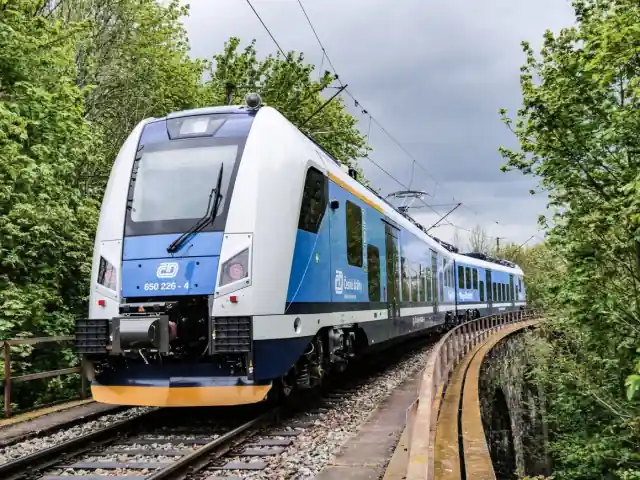
SOFIA, Bulgaria — Bulgaria is set to upgrade its railway infrastructure with the acquisition of 20 new electric locomotives, funded through the Recovery and Sustainability Plan, according to an announcement from the government press center.
The contract for the new locomotives will be officially signed in the presence of Prime Minister Dimitar Glavchev, marking a significant investment in the country’s transportation sector.
The new electric trains, which boast a capacity of at least 300 seats each, will play a crucial role in modernizing Bulgaria’s railway services.
Alongside the locomotives, the contract includes a comprehensive maintenance package for a period of 15 years, ensuring the long-term operational reliability of the trains. Additionally, staff training will be provided to ensure proper handling and management of the new rolling stock.
The Ministry of Transport and Communications is the contracting authority for the project, while the execution will be handled by a consortium of Škoda Transportation and Škoda Wagonka.
The total value of the project is 511.4 million leva (€261 million), reflecting Bulgaria’s commitment to improving its public transportation infrastructure and reducing the carbon footprint of its rail network.
Focus on Key Routes
The new electric locomotives will be deployed on some of Bulgaria’s longest and most important railway routes, including Sofia-Burgas, Sofia-Varna, and Sofia-Ruse.
These routes connect key cities across the country, and the introduction of modern electric trains is expected to enhance travel efficiency and comfort for passengers.
With a delivery timeframe of two years, the trains are expected to be fully operational by 2026.
This investment is part of Bulgaria’s broader strategy to shift towards more sustainable and environmentally-friendly modes of transport, aligning with the European Union’s goals for green energy transitions and infrastructure development.
Prime Minister Dimitar Glavchev hailed the initiative as a milestone in Bulgaria’s journey towards modernizing its transport infrastructure.
“These electric locomotives will not only reduce travel times but also contribute to our environmental goals by reducing emissions. This is a win for both the economy and the environment,” Glavchev stated during a press conference announcing the project.
Funding Through EU’s Recovery and Resilience Facility
The financing for the new locomotives comes from the European Union’s Recovery and Resilience Facility, a key part of the EU’s response to the economic impacts of the COVID-19 pandemic.
Bulgaria’s Recovery and Sustainability Plan focuses on modernizing infrastructure, supporting green initiatives, and driving economic growth through sustainable investments.
Transport Minister Georgi Todorov highlighted the importance of this investment in aligning Bulgaria’s transportation sector with European standards.
“Our aim is to make railway transport more attractive for passengers and a reliable alternative to road transport. These new locomotives will help us achieve that by offering modern, efficient, and environmentally-friendly travel options,” Todorov said.
The Ministry of Transport and Communications emphasized that the project is a critical step in addressing the challenges of aging railway infrastructure, which has faced significant wear and tear over the years.
The new trains will replace older, less efficient models, reducing operational costs and improving overall service quality.
Enhancing Bulgaria’s Rail Transport
The procurement of these electric locomotives is part of a broader push to revitalize Bulgaria’s rail transport sector, which has been lagging in terms of modernization.
With this investment, the country aims to offer a more competitive alternative to road and air transport, reducing congestion and pollution in urban areas.
The government also sees the project as an opportunity to create jobs in maintenance and operations, further supporting the local economy.
As Bulgaria continues to invest in modernizing its infrastructure, these new electric locomotives are expected to play a pivotal role in shaping the future of the country’s transport network, ensuring cleaner, faster, and more efficient travel for citizens.
